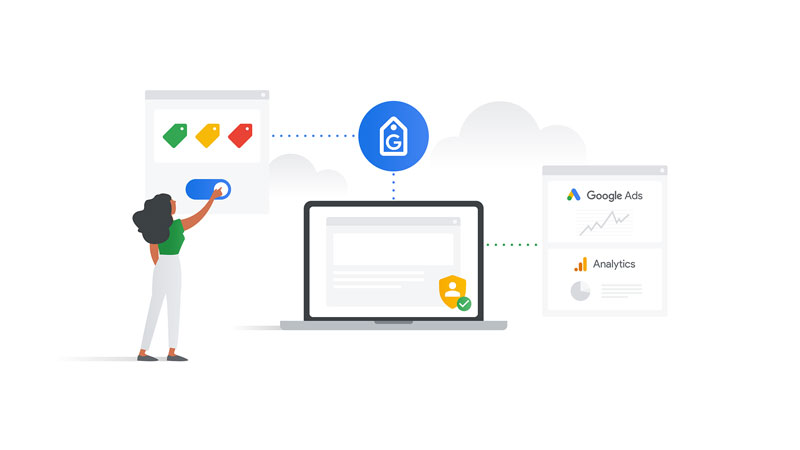In the vast digital landscape, where websites are storefronts and search engines are the pathways, the role of an SEO analyst emerges as a crucial element for online success. This blog aims to unravel the journey to becoming an SEO analyst, from understanding the basics to navigating the intricacies of search engine optimization.
Why is SEO Important?
The importance of SEO can be understood through several key reasons:
- Increased Visibility and Traffic: Websites that appear higher in search results are more likely to be clicked. SEO helps improve a website’s visibility, leading to increased organic traffic.
- Credibility and Trust: Websites ranking prominently in search results are often perceived as more credible and trustworthy by users. Using SEO helps create a good online reputation.
- Cost-Effectiveness: In contrast to paid promotions, the cost-effectiveness of organic traffic derived from SEO is evident. Once a website achieves a high ranking, ongoing maintenance costs are generally lower than continuous ad spend.
- Targeted Audience: SEO allows businesses to target specific keywords and demographics, ensuring that their content reaches an audience actively searching for relevant information or products.
- Competitive Advantage: In competitive industries, effective SEO can provide a significant edge. Securing higher positions in search results has the potential to enhance market share and attract more customers.
- Adaptation to Changing Trends: As search engine algorithms evolve, SEO practices need to adapt. Staying abreast of these changes ensures a website remains optimized and visible in the ever-changing online landscape.
Skills Needed to Become an SEO Analyst
Becoming a successful SEO analyst requires a combination of technical, analytical, and creative skills. The constantly evolving nature of search engine algorithms and digital marketing trends makes it essential for SEO professionals to possess a diverse skill set. Here are some key skills needed to become an SEO analyst:
1. Analytical Skills
- Data Analysis: Ability to interpret and analyze data from various sources, including Google Analytics, SEO tools, and other metrics.
- Problem Solving: A knack for identifying issues affecting search performance and devising effective solutions.
2. Technical Proficiency
- HTML and CSS: Basic understanding of HTML and CSS to make on-page optimizations and work with web developers.
- Website Architecture: Familiarity with website structure and navigation to improve user experience and search engine crawlability.
3. Keyword Research
- Keyword Analysis: Ability to conduct thorough keyword research to identify relevant terms and phrases that align with business goals.
- User Intent Understanding: Skill in understanding user intent behind search queries to create content that addresses specific needs.
4. Content Creation and Optimization
- Content Writing: Strong writing skills to create high-quality, engaging, and optimized content.
- Content Optimization: Knowledge of on-page optimization techniques, including proper use of headers, meta tags, and keyword placement.
5. Link Building
- Backlink Analysis: Understanding of backlink profiles and the ability to build high-quality backlinks to improve a website’s authority.
- Link Outreach: Skill in conducting outreach to establish partnerships and acquire backlinks from reputable websites.
6. SEO Tools
- Familiarity with SEO Tools: Proficiency in using tools like Google Analytics, Google Search Console, SEMrush, Moz, Ahrefs, and others to gather insights and track performance.
7. Adaptability
- Keeping Up with Trends: Ability to stay informed about the latest trends, algorithm updates, and changes in the SEO landscape.
- Adapting Strategies: Flexibility to adapt strategies based on evolving search engine algorithms and industry best practices.
8. Communication Skills
- Client Communication: Ability to explain complex SEO concepts to clients or stakeholders in a clear and understandable manner.
- Collaboration: Effective collaboration with content creators, web developers, and other stakeholders to implement SEO recommendations.
9. Project Management
- Organization: Strong organizational skills to manage multiple projects, deadlines, and priorities effectively.
10. Curiosity and Continuous Learning
- Curiosity: A curious mindset to explore and understand user behavior, industry trends, and emerging technologies.
- Continuous Learning: Commitment to ongoing learning to stay ahead in the dynamic field of SEO.
Combining these skills with practical experience and a strategic mindset will empower aspiring SEO analysts to navigate the complexities of the digital landscape and contribute to the success of online businesses.
What Education Do You Need to Become an SEO analyst?
While there is no strict educational path for becoming an SEO analyst, having a relevant educational background can provide a strong foundation and make you more competitive in the job market. Here are some educational avenues that can be beneficial for aspiring SEO analysts:
Degree:
- Bachelor’s Degree: Pursuing a bachelor’s degree in fields such as Marketing, Business, Communications, or Computer Science can provide a well-rounded education that aligns with the various aspects of SEO.
- Marketing or Communications Degrees: Degrees in marketing, advertising, or communications can be particularly valuable, as they provide a strong understanding of consumer behavior, market trends, and effective communication strategies.
- Computer Science or Information Technology: A background in computer science or information technology can be advantageous, especially for understanding the technical aspects of SEO, such as website structure, coding, and server configurations.
Online Course and Certifications
- Online Learning Platforms: Explore online learning platforms like Coursera, Udemy, LinkedIn Learning, and others that offer courses on SEO. These platforms often provide practical insights and hands-on experience.
- Digital Marketing or SEO Certification Courses: Consider taking specialized courses or certifications in digital marketing or SEO. Many reputable organizations and online platforms offer courses that cover SEO fundamentals, advanced strategies, and the use of relevant tools.
- Content Creation and Writing Courses: Strong content is a crucial component of SEO. Courses in writing, journalism, or content creation can help you develop the skills needed to produce high-quality, SEO-friendly content.
- Analytics and Data Science Courses: Given the analytical nature of SEO, courses in data analytics or data science can enhance your ability to analyze and interpret data from various SEO tools.
Internships and Practical Experience
- While not strictly an educational path, gaining practical experience through internships or entry-level positions in digital marketing, content creation, or related fields can be invaluable. Real-world experience allows you to apply theoretical knowledge and develop a portfolio.
Ultimately, the combination of education, certifications, and hands-on experience will equip you with the skills needed to thrive as an SEO analyst. Many successful SEO professionals have diverse educational backgrounds, emphasizing the importance of a multidisciplinary approach in this field.
What experience do you need to become an SEO analyst?
To become a successful SEO analyst, gaining relevant experience is crucial. While educational qualifications provide a foundation, practical, hands-on experience allows you to apply theoretical knowledge in real-world scenarios. Here are key types of experiences that can contribute to becoming a proficient SEO analyst:
- Internships or Entry-Level Positions: Seek internships or entry-level positions in digital marketing agencies, SEO firms, or companies with a strong online presence. These roles can provide exposure to various aspects of SEO, from keyword research to on-page optimization.
- Freelance Projects: Take on freelance projects to work on real websites and gain experience in implementing SEO strategies. Freelancing allows you to build a portfolio showcasing your skills and achievements.
- Personal Website or Blog: Create and optimize your own website or blog. This hands-on experience will give you insights into the challenges of SEO, content creation, and website management. It also serves as a tangible example of your abilities when seeking employment.
- Networking and Collaboration: Engage in partnerships with fellow professionals within the digital marketing industry. Networking can provide opportunities to work on joint projects, learn from experienced individuals, and stay informed about industry trends.
- Stay Updated and Follow Industry Leaders: Actively follow industry blogs, forums, and thought leaders. Participate in discussions, attend webinars, and stay informed about algorithm updates and emerging trends in SEO.
Regularly update your skills, experiment with new strategies, and be adaptable to changes in search engine algorithms. As you accumulate diverse experiences, you’ll be better equipped to tackle the complexities of SEO and contribute effectively as an SEO analyst.
What tasks and challenges do you face as an SEO analyst?
SEO analysts encounter a variety of tasks and challenges in their roles, given the dynamic and ever-evolving nature of search engine optimization. Here are some common tasks and challenges faced by SEO analysts:
1. Tasks
- Keyword Research: Conduct comprehensive keyword research to identify relevant terms and phrases that align with business goals and user intent.
- On-Page Optimization: Implement on-page optimization strategies, including optimizing meta tags, headers, and content to improve the relevance and visibility of web pages.
- Technical SEO: Address technical aspects of SEO, such as website structure, crawlability, site speed, and mobile optimization, to enhance the overall performance of the site.
- Content Creation and Optimization: Create and optimize high-quality, SEO-friendly content that aligns with targeted keywords and addresses user queries.
- Link Building: Develop and execute link-building strategies to acquire high-quality backlinks, enhancing the website’s authority and trustworthiness.
- Analytics and Reporting: Use tools like Google Analytics and SEO-specific platforms to analyze data, track key performance indicators (KPIs), and prepare reports on SEO performance.
- Competitor Analysis: Conduct competitor analysis to understand industry trends, identify opportunities, and refine SEO strategies based on competitive insights.
- Local SEO: Implement local SEO strategies for businesses targeting specific geographical areas, optimizing for local searches and Google My Business.
- Algorithm Updates: Stay informed about search engine algorithm updates and adjust SEO strategies to align with evolving ranking criteria.
- User Experience Enhancement: Collaborate with web developers and designers to enhance the overall user experience, contributing to better SEO performance.
- Conversion Rate Optimization (CRO): Work on optimizing landing pages and user flows to improve conversion rates and achieve business goals.
2. Challenges
- Adapting to Industry Changes: Adapting quickly to changes in user behavior, technological advancements, and shifts in online marketing trends.
- Algorithm Changes: Keeping up with frequent changes in search engine algorithms, which can impact rankings and necessitate adjustments to SEO strategies.
- Intense Competition: Navigating highly competitive industries where outranking competitors requires strategic and innovative approaches.
- Data Interpretation: Analyzing and interpreting large sets of data to derive actionable insights, requiring a balance of analytical skills and business acumen.
- Technical Challenges: Addressing technical issues on websites, such as crawl errors, indexing problems, or server issues that may impact SEO performance.
- Client Communication: Effectively communicating SEO strategies and results to clients or stakeholders, often involving educating them on complex concepts.
- Balancing Priorities: Juggling multiple tasks and priorities, such as managing ongoing optimizations, addressing urgent issues, and planning for future strategies.
- Constant Learning: Staying current with industry trends, new technologies, and emerging SEO best practices to maintain a competitive edge.
Navigating these tasks and challenges requires a combination of technical skills, analytical thinking, adaptability, and effective communication. Successful SEO analysts continuously refine their strategies to align with the evolving digital landscape and deliver meaningful results for their clients or organizations.
Conclusion
Embarking on the journey to become an SEO analyst involves a blend of education, hands-on experience, and a commitment to staying current in a dynamic field. As the digital landscape continues to evolve, the role of SEO analysts remains integral to ensuring businesses thrive in the competitive online environment.




